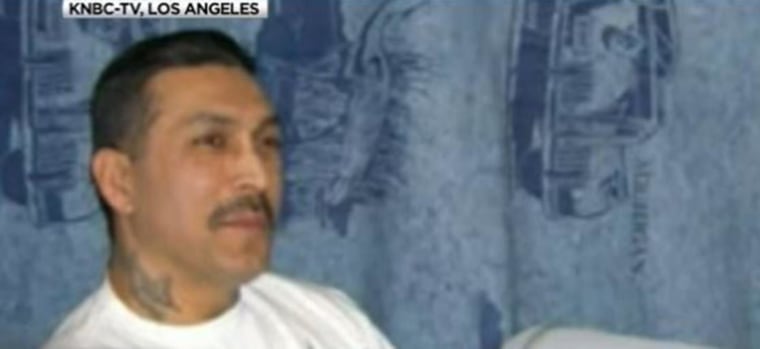California Gov. Jerry Brown blocked parole for Rene "Boxer" Enriquez, a former leader of the notorious Mexican Mafia prison gang who has turned on his former comrades and now aids law enforcement.
"Because he is a high-profile drop out targeted by the Mexican Mafia, Mr. Enriquez' parole poses a serious security risk to him, his family, his parole agents, and the community in which he is placed," Brown wrote.
Enriquez, 52, has been in prison since 1993 serving a sentence of 20 years-to life in prison for two murders, multiple assaults and conspiracy to traffic in controlled substances.
The Los Angeles District Attorney's Office opposed his parole request, although he had letters of support from the FBI; several deputy district attorneys; a deputy state attorney general; three assistant U.S. Attorneys; and several officers from local forces and the California Department of Corrections and Rehabilitation, according to the transcript.
His brazenness was demonstrated in 1991, when he and another man assaulted Mexican Mafia leader Salvador "Mon" Buenrostro at a lawyers' interview room in the Los Angeles County Jail. They stabbed him 26 times but Buenrostro survived.
He joined the Mexican Mafia during his first stint in prison, later rising to gang leadership.
Once he began cooperating with authorities in 2005, the government went to extraordinary lengths to protect him, at one point booking him into custody under a false name for possession of a swordfish without a license, which Enriquez said was a bogus or "ghost" charge to protect him.
He testified that he was being paid a stipend of $200 a week for work that includes giving lectures to California law enforcement officials and teaching an online course on major prison gangs.
